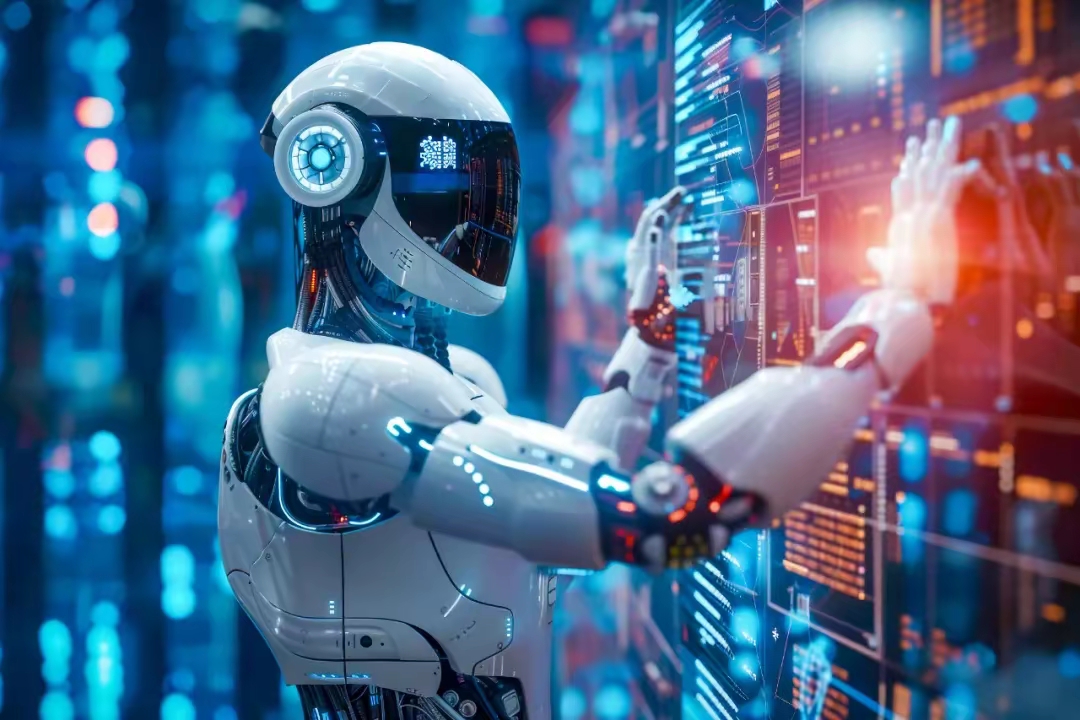
In the current era of rapid technological development, artificial intelligence (AI) has become a global focus of attention. From intelligent voice assistants used in daily life, to disease diagnosis assistance in the medical field, and to automated processes in industrial production, AI is integrating into all aspects of human life at an unprecedented speed. However, behind its rapid development, people's discussions on the future direction of artificial intelligence have become increasingly enthusiastic. Where is the future of this emerging technology?
It is undeniable that artificial intelligence has brought many significant benefits to human society. In the economic field, AI has greatly improved production efficiency. In the manufacturing industry, intelligent robots can tirelessly complete high-precision and repetitive tasks, not only improving product quality, but also significantly shortening production cycles and reducing production costs.
In the field of healthcare, artificial intelligence has shown tremendous potential. AI can analyze massive amounts of medical data to help doctors diagnose diseases more accurately. For example, through the recognition of medical images, AI can detect early cancer lesions, greatly improving the cure rate of cancer.
From a societal perspective, artificial intelligence can also improve public services. Intelligent transportation systems utilize AI technology to optimize the timing of traffic signals, monitor traffic flow in real-time, and effectively alleviate urban congestion. With the help of image recognition and data analysis technology, the intelligent security system can quickly identify suspect and improve the level of social security.
However, the development of artificial intelligence has not been smooth sailing, and its drawbacks cannot be ignored. Firstly, the employment structure is facing significant adjustments. With the widespread application of AI technology, a large number of repetitive and regular job positions will be replaced by automation equipment and intelligent robots. The impact on professions such as factory assembly line workers, data entry personnel, and customer service representatives is particularly evident.
Secondly, data privacy and security issues are becoming increasingly prominent. The development of artificial intelligence cannot be separated from a large amount of data support, which often contains sensitive content such as users' personal information, consumption habits, health status, etc. Once these data are leaked or abused, it will cause serious damage to users' privacy and rights. For example, some criminals carry out precise fraud by stealing user data, causing economic losses to users. In addition, AI systems themselves may also have security vulnerabilities, which can lead to system paralysis and affect the normal operation of society after being attacked by hackers.
So, where exactly is the future of artificial intelligence? In order to achieve sustainable development of artificial intelligence, we need to take a series of measures to address the above challenges.
At the technical level, we should strengthen the basic research of artificial intelligence and promote the innovative development of AI technology. On the one hand, it is necessary to continuously improve the intelligence level of AI systems, so that they can better understand human language, emotions, and behavior, and achieve more natural and efficient human-computer interaction. On the other hand, it is important to focus on the security and reliability research of AI technology, develop safer and more stable AI systems, and reduce their potential risks.
At the policy level, the government should formulate relevant laws, regulations, and policy measures to guide the healthy development of artificial intelligence. For example, strengthening the protection of data privacy and security, regulating the collection, use, and management of data; Establish sound ethical standards and regulatory mechanisms for artificial intelligence, and rigorously supervise and evaluate the research and application of AI systems; Increase investment in education and training, cultivate high-quality talents that meet the needs of the artificial intelligence era, and alleviate employment pressure.
At the societal level, it is necessary to enhance the public's awareness and understanding of artificial intelligence, and improve their technological literacy. By means of science popularization, education and training, etc., the public can understand the current development status, application prospects and potential risks of artificial intelligence, guide the public to have a correct view of artificial intelligence, and actively participate in the development and application of artificial intelligence.
The future of artificial intelligence is full of opportunities and challenges. It has brought enormous potential for the development of human society, but also triggered a series of problems and concerns. Only by fully recognizing the advantages and disadvantages of artificial intelligence and actively taking measures to respond can we better serve human society and achieve harmonious coexistence between humans and artificial intelligence.

YTN TV of South Korea reported on Tuesday (December 16) that the South Korean court plans to make a ruling on the charges of former President Yoon Suk Yeol for obstructing justice on January 16, 2026.
YTN TV of South Korea reported on Tuesday (December 16) tha…
On December 7, a new round of intense military conflict bro…
Recently, US media disclosed that the Pentagon is planning …
From three launch failures and a brush with bankruptcy to n…
Recently, a major piece of news has emerged in the US polit…
Against the backdrop of the Federal Reserve's third rate cu…